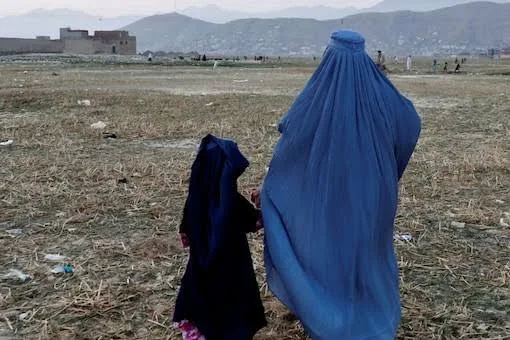By A Representative
In a surprise move, Jamaat-e-Islami Hind (JIH), considered the liberal face of Islamic political groups in India, lending its support to the the new change in Afghanistan, has hoped that they will end "years of unrest and bloodshed" in the country and "restore peace and order in the region and help to reinstate the rights of the Afghan people."
JIH president Syed Sadatullah Husaini said in a statement, “20 years ago, the overthrow of the Afghan government through military action, the brutal atrocities on innocent civilians by colonial and imperialist forces, the series of bombings and raids on its cities and the constant attempts to impose the will of foreign powers on the Afghan people is a reprehensible chapter of recent history."
Calling the political changes in the country is the result of "the perseverance and struggle of the Afghan people" consequent to which "withdrawal of the imperialist forces" in that country, he added, "Imperialist powers should learn a lesson from this episode and forever refrain from the policy of unnecessary interference in the affairs of poor countries to further their own vested interests."
Expressing "happiness and satisfaction that the transfer of power was completed peacefully without much bloodshed", Husaini said, "The Taliban have the opportunity to present to the world a practical example of the benevolent and merciful system of Islam. We would like to draw their attention to the fact that Islam is the advocate of peace and well-being. It gives freedom of belief. The protection of the lives and property of all human beings, including minorities, is of paramount importance to Islam."
Insisting that "Islam is also very sensitive about women's rights", Husaini said, "We hope that the new rulers of Afghanistan will strictly adhere to these teachings of Islam and set an example before the world of an Islamic welfare state where everyone is free from fear and terror and lives a peaceful and prosperous life with equal opportunity to flourish and prosper."
He added, "We also hope that a new government shall soon be established in Afghanistan by popular vote in the democratic and consultative spirit of Islam that represents all sections of the country and one that shall prove to be a source of lasting unity and stability among the Afghan people."
According to Husaini, "Reports that the Taliban have announced a general amnesty, assured peace and order to Sikhs, Hindus and other minorities, and hinted at dialogue and co-operation with all countries of the world are welcome.”
As for Indo-Afghan relations, the JIH chief said, “In recent years, India has also played an important role in the development of Afghanistan. We hope that this warmth and solid relations will continue and be further strengthened."
"We also wish to remind the Government of India of its responsibility to initiate healthy relations with the new Afghan government and to play its part in building and developing Afghanistan and ensuring peace and security throughout South Asia", he added.
In a surprise move, Jamaat-e-Islami Hind (JIH), considered the liberal face of Islamic political groups in India, lending its support to the the new change in Afghanistan, has hoped that they will end "years of unrest and bloodshed" in the country and "restore peace and order in the region and help to reinstate the rights of the Afghan people."
JIH president Syed Sadatullah Husaini said in a statement, “20 years ago, the overthrow of the Afghan government through military action, the brutal atrocities on innocent civilians by colonial and imperialist forces, the series of bombings and raids on its cities and the constant attempts to impose the will of foreign powers on the Afghan people is a reprehensible chapter of recent history."
Calling the political changes in the country is the result of "the perseverance and struggle of the Afghan people" consequent to which "withdrawal of the imperialist forces" in that country, he added, "Imperialist powers should learn a lesson from this episode and forever refrain from the policy of unnecessary interference in the affairs of poor countries to further their own vested interests."
Expressing "happiness and satisfaction that the transfer of power was completed peacefully without much bloodshed", Husaini said, "The Taliban have the opportunity to present to the world a practical example of the benevolent and merciful system of Islam. We would like to draw their attention to the fact that Islam is the advocate of peace and well-being. It gives freedom of belief. The protection of the lives and property of all human beings, including minorities, is of paramount importance to Islam."
Insisting that "Islam is also very sensitive about women's rights", Husaini said, "We hope that the new rulers of Afghanistan will strictly adhere to these teachings of Islam and set an example before the world of an Islamic welfare state where everyone is free from fear and terror and lives a peaceful and prosperous life with equal opportunity to flourish and prosper."
He added, "We also hope that a new government shall soon be established in Afghanistan by popular vote in the democratic and consultative spirit of Islam that represents all sections of the country and one that shall prove to be a source of lasting unity and stability among the Afghan people."
According to Husaini, "Reports that the Taliban have announced a general amnesty, assured peace and order to Sikhs, Hindus and other minorities, and hinted at dialogue and co-operation with all countries of the world are welcome.”
As for Indo-Afghan relations, the JIH chief said, “In recent years, India has also played an important role in the development of Afghanistan. We hope that this warmth and solid relations will continue and be further strengthened."
"We also wish to remind the Government of India of its responsibility to initiate healthy relations with the new Afghan government and to play its part in building and developing Afghanistan and ensuring peace and security throughout South Asia", he added.


Comments